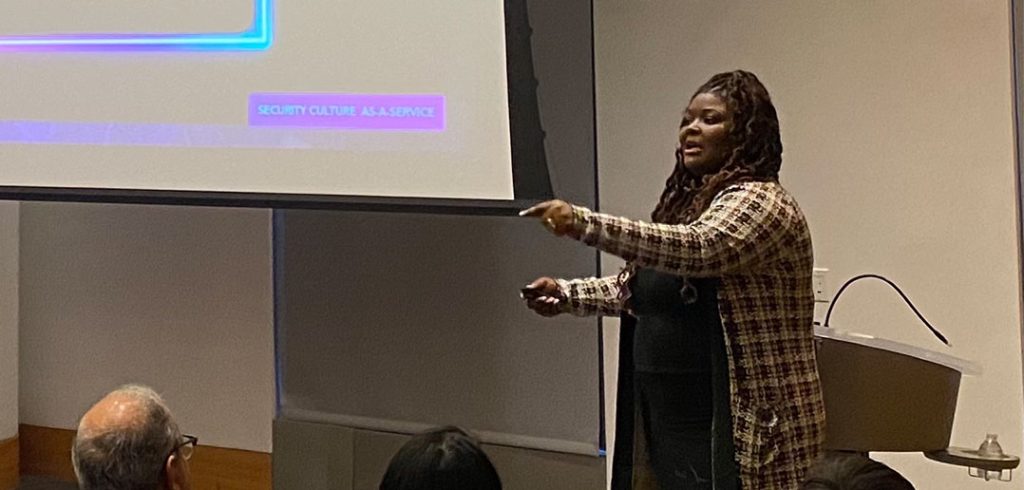Okafor discussed this at the 2023 Forever Learning event, At the Intersection of Human and Tech, where several other Fordham alumni also talked about their experiences in fields from journalism to fashion. During her panel, “Open AI and Cybersecurity,” Okafor recalled a lesson from a job she held prior to founding RevolutionCyber. She and her team studied the systemic failures that had made a large cruise ship company vulnerable to cyberattacks. When they spent time on one of the company’s ships, she said, it became clear that the people working there were key to identifying—and preventing—similar attacks in the future.
“The people who gave us the best information were the ones we spent the most time with, whose stories we listened to, who told us when the systems went down, how it made them feel,” Okafor said. The experience made her realize that “we have to start to think more about people and culture and behavior. Everyone was talking about security awareness. I thought, ‘We need to address security culture.’”
Okafor, who served on the GSAS Dean’s Advisory Board, credits her Fordham graduate degree in communications with helping her focus on the intersection between technology, business, and workplace culture.
“The future of cyber security is quintessentially human,” she wrote in a LinkedIn post. “As such, I truly believe cybersecurity requires a lifestyle change that we will all come to embrace as a regular part of life.”
Helping companies and people make that change is her aim with RevolutionCyber, which offers personalized employee training sessions, end-to-end assistance with cybersecurity program design and execution, and ongoing assessment options. During her presentation, she explained that AI technology can help in the quest to identify safe versus malicious behaviors by cross-comparing environments, allowing organizations to build a deeper knowledge base, enact a faster incident response, and develop better secure software.
But, she said, human concerns must always take precedence when using AI—or any technology—an approach at the heart of many of the cybersecurity programs at Fordham.
“We have to think about the humanity that is impacted by the deploying of technology. We can’t stop the AI from coming. We just have to be ready, and we need to always consider how it impacts our lives and the people around us.”
The 2024 Forever Learning event, Curating Curiosity, will take place on March 9, and you can register now.

